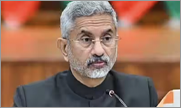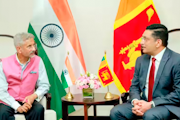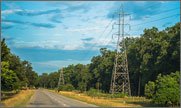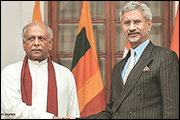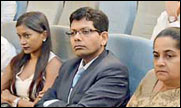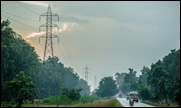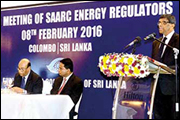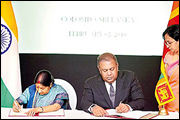Energy Results
Energy demand in the SASEC subregion is expected to increase over the next decade resulting from economic growth and rising per capita incomes and energy consumption. With energy resources in South Asia unevenly spread, regional energy cooperation could help countries develop their energy resources in an optimal manner to lower energy costs, improve regional energy security, and contribute to climate change mitigation. SASEC initiatives in the energy sector support improvement of energy trade infrastructure, developing a regional power market by harmonizing legal and regulatory frameworks, and developing low-carbon alternatives and conservation and energy efficiency measures.
ENERGY SRI LANKA
NEWS & MULTIMEDIA
total items: 24India Prime Minister Narendra Modi and Sri Lanka President Anura Kumara Disanayaka held comprehensive discussions on 16 December 2024 in New Delhi, India. Both leaders affirmed their commitment to further enhance the relationship and emphasized cooperation in various areas, including connectivity, energy, trade, and tourism.
The Bay of Bengal Initiative for Multi-Sectoral Technical and Economic Cooperation (BIMSTEC) Foreign Ministers' Retreat drew to a close on 11-12 July 2024, as foreign ministers gathered to strengthen cooperation among the BIMSTEC member countries. Mr. Subrahmanyam Jaishankar, India External Affairs Minister, lauded the retreat, describing it as "productive" and the meetings "highly useful."
A memorandum of understanding on linking India and Sri Lanka’s electricity grids could soon be signed to be followed by a feasibility study, according to Mr. Milinda Moragoda, Sri Lankan High Commissioner to India. India and Sri Lanka revived talks on linking their electricity grids in the first quarter of 2022.
Mr. S. Jaishnakar, External Affairs Minister of the Government of India, met with Mr. Ali Sabry, Foreign Minister of the Government of Sri Lanka. They discussed cooperation in infrastructure, connectivity, energy, industry, and health.
The Embassy of Sri Lanka in Nepal and the Export Development Board (EDB) of Sri Lanka jointly organized a webinar among the Nepal Ministry of Energy, Water Resources and Irrigation (MOEWRI) and Nepal Electricity Authority (NEA), and around 30 hydropower companies from Sri Lanka.
Mr. S. Jaishankar, External Affairs Minister of the Government of India, held a virtual meeting with Mr. Basil Rajapaksa, Finance Minister of the Government of Sri Lanka on 15 January 2022. The meeting reiterated India’s continued support for Sri Lanka, and emphasized that both countries stand to gain from forming closer economic interlinkages.
India and Sri Lanka are looking forward to cooperating post-COVID-19, underscored Mr. Jaishankar during his visit to Sri Lanka. He noted that many opportunities are in discussion, such as special zones for pharmaceutical manufacturing and tourism. There were also proposals in infrastructure, energy, and connectivity. He also stressed that the Indian business community is strongly interested in investing in Sri Lanka.
Dr. Yongping Zhai, Technical Advisor (Energy), Sustainable Development and Climate Change Department, Asian Development Bank (ADB), and Mr. David Elzinga, Senior Energy Specialist, ADB, advised the Government of Sri Lanka to keep their options open in securing the country's energy future. Reiterating ADB's support for Sri Lanka's energy security, Dr. Zhai urged the country to opt for renewables over coal to fast-track its commitment to the Paris agreement.
The Government of India signed an agreement to build two liquefied natural gas (LNG) terminals in Colombo, Sri Lanka, in collaboration with the Government of Japan. These were approved by the Government of Sri Lanka, along with an LNG project by the People's Republic of China. In total, the three LNG power plants will generate up to 1,400 megawatts.
In her keynote address at the dialogue on BiMSTEC at 20—Priorities for the Future, Ms. Grace Asirwatham, State Secretary, Ministry of Foreign Affairs, Sri Lanka, reflects on the prospects for connectivity and prosperity among BIMSTEC member countries and explores the organization's priorities, including trade, transport, energy, and climate change.
Nepal has decided to join the Bay of Bengal Initiative for Multi-Sectoral Technical and Economic Cooperation (BIMSTEC) grid interconnection, a move meant to help facilitate trade in electricity and take full advantage of available energy sources. Nepal is expected to sign an MOU to join the grid interconnection at the Third BIMSTEC Energy Ministers' Meeting.
An Asian Development Bank report suggests that a shift in India’s electricity policy could help address the acute electricity shortages faced by SAARC countries, which affects socioeconomic development as well as business operations. Policy amendments could help facilitate cross-border power trade among SAARC countries and give communities better access to electricity.
Finance ministers and senior officials of member countries of the South Asian Association for Regional Cooperation (SAARC), including Afghanistan, Bangladesh, Bhutan, India, Maldives, Nepal, Pakistan, and Sri Lanka met on 5 May at Yokohama, Japan, at the sidelines of the Asian Development Bank (ADB) 50th Annual General Meeting.
India's Union Cabinet, chaired by Prime Minister Narendra Modi, approved the ratification of the MOU for the Establishment of the BIMSTEC Grid Interconnection. The MOU is expected to be signed at the next BIMSTEC Energy Minsters' Meeting and provides a broad framework for energy trade among BIMSTEC member countries.
Bangladesh has the potential to become a transport hub for India, Bhutan, Nepal, Maldives, Sri Lanka, and Myamar, according to Mr. AMA Muhith, Finance Minister, Bangladesh. Turning Bangladesh into a regional and transshipment hub would enhance economic cooperation and result in collective economic growth for the countries, Mr. Muhith said at the SASEC Finance Ministers’ Meeting in New Delhi, India.
Least Developed Countries (LDCs) comprise around 880 million people yet account for less than 2% of the world gross domestic product. South Asian countries can accelerate economic development and graduate from the LDC category by working with each other. The economic future of their people could change radically through collaboration between the countries and lift millions of people out of poverty.
Mr. S. Jaishankar, Foreign Secretary, Ministry of External Affairs, India, called on Sri Lanka President Maithripala Sirisena to discuss potential partnerships between India and Sri Lanka in sectors including energy, infrastructure, and transport, and Sri Lanka Prime Minister Ranil Wickremesinghe to further discuss boosting bilateral trade and investment.
South Asian countries should engage more in regional energy trade and joint management of resources. By doing so, they could save over $9 billion annually and reduce carbon emissions by 8%. And since energy drives development, energy cooperation and trade is expected to translate to improved standards of living and poverty reduction.
South Asia Subregional Economic Cooperation (SASEC) investment projects increased to a cumulative $7.66 billion in the areas of transport, energy, trade facilitation, and ICT with the recent approval of India’s Bihar New Ganga Bridge Project. To date, 40 SASEC-supported projects are helping member countries strengthen regional connectivity infrastructure, promote economic growth, and foster regional cooperation. In addition, there are now 71 technical assistance projects worth $66.14 mi
Mr. Hun Kim, Director General, South Asia Department, ADB, describes how partnership of 6 South Asian countries through the ADB-supported South Asia Subregional Economic Cooperation (SASEC) Program is helping propel economic growth in South Asia, amidst an uncertain regional and global economic climate, by working to increase trade volumes to reduce the number of impoverished people in the region.
The Second Meeting of the SAARC Energy Regulators agreed to address regulatory barriers through a Regional Regulatory Body, which will work toward harmonizing legal, policy, and regulatory frameworks to promote wider availability of electricity and boost cross-border trade in the region.
The 9th Session of the India-Sri Lanka Joint Commission discussed strengthening India-Sri Lanka cooperation in areas including energy and trade. The two countries are also preparing to open negotiations on the Economic and Technology Cooperation Agreement. Further possible collaboration in railway development and renewable energy was also bookmarked by the Joint Commission.
Bangladesh Prime Minister Sheikh Hasina and Sri Lanka High Commissioner Yasoja Gunasekera discussed a possible scope of cooperation during a courtesy call paid by the High Commissioner to the Prime Minister in October. Prime Minister Hasina encouraged more Sri Lankan investments and joint ventures in Bangladesh's 22 special economic zones. Bangladesh is also considering introducing a sea route to Sri Lanka.
Many countries in the South Asia region face the challenges of energy shortages as they gear up for higher economic growth.



